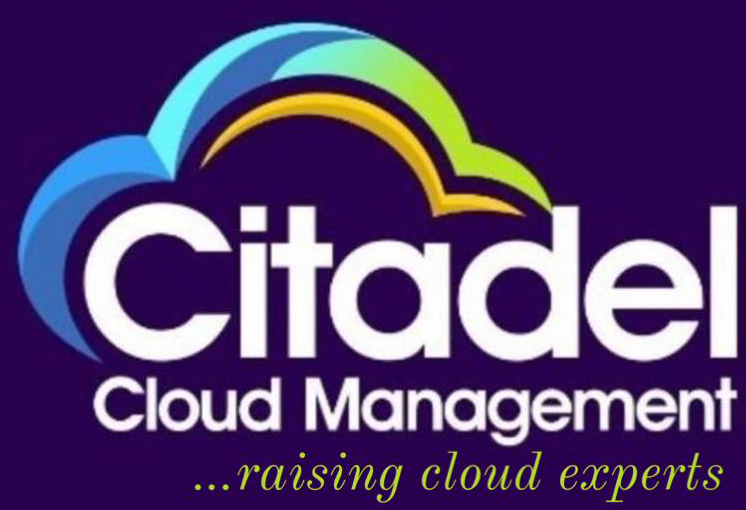
Future of Cloud Audits: Trends and Predictions
citadelcloud
As businesses increasingly migrate their operations to the cloud, the importance of effective cloud audits has grown significantly. Cloud audits are essential for ensuring compliance, security, and optimal performance within cloud environments. This blog post explores the current trends in cloud auditing and offers predictions for the future, helping organizations understand what to expect and how to prepare.
Understanding Cloud Audits
Before diving into trends and predictions, it’s crucial to understand what cloud audits entail. A cloud audit is an evaluation of an organization’s cloud-based services, systems, and processes to assess compliance with internal policies, industry regulations, and security standards. These audits typically involve:
- Risk Assessment: Identifying potential vulnerabilities in cloud configurations and applications.
- Compliance Verification: Ensuring adherence to relevant regulations and standards (e.g., GDPR, HIPAA).
- Performance Evaluation: Analyzing the efficiency and effectiveness of cloud resources.
Trends Shaping the Future of Cloud Audits
1. Increased Automation in Auditing Processes
Automation is transforming various aspects of business operations, and cloud audits are no exception. With the rise of automated auditing tools, organizations can conduct real-time assessments of their cloud environments. Automated audits improve efficiency by reducing manual labor, minimizing human errors, and providing faster insights. Additionally, organizations can integrate continuous monitoring tools that automatically flag compliance and security issues as they arise, allowing for quicker remediation.
2. Focus on Data Privacy and Security Compliance
With the growing number of data breaches and stringent regulations like GDPR and CCPA, organizations are placing greater emphasis on data privacy and security in their cloud audits. Auditors are expected to have a deeper understanding of data protection requirements and implement robust privacy controls. This trend will likely lead to more comprehensive audits that assess not only technical controls but also organizational policies regarding data handling and privacy.
3. Hybrid and Multi-Cloud Environments
As businesses increasingly adopt hybrid and multi-cloud strategies, auditors must adapt their approaches to assess complex environments effectively. Cloud audits will need to account for the unique challenges associated with managing data and applications across different cloud providers. This trend will necessitate collaboration among auditors, cloud providers, and organizations to ensure seamless and comprehensive audits across diverse platforms.
4. Integration of AI and Machine Learning
Artificial Intelligence (AI) and Machine Learning (ML) are revolutionizing various fields, and cloud auditing is no exception. AI-driven analytics can help auditors identify patterns and anomalies in large datasets, making it easier to detect potential security threats or compliance issues. As these technologies mature, they will likely play an integral role in future audits, enhancing the accuracy and effectiveness of assessments.
5. Enhanced Collaboration Between Stakeholders
Successful cloud audits require collaboration among various stakeholders, including IT teams, compliance officers, and external auditors. In the future, we can expect more streamlined communication and collaboration tools that facilitate information sharing and ensure everyone is on the same page. This collaboration will foster a culture of transparency, allowing organizations to address compliance and security concerns proactively.
6. Emphasis on Continuous Auditing and Monitoring
Gone are the days of conducting audits as a once-a-year event. The future of cloud audits will emphasize continuous monitoring and auditing to ensure ongoing compliance and security. Organizations will leverage advanced monitoring tools that provide real-time insights into their cloud environments, allowing them to respond swiftly to any issues. This trend aligns with the increasing need for agility and adaptability in today’s fast-paced digital landscape.
Predictions for the Future of Cloud Audits
1. Adoption of Standardized Audit Frameworks
As cloud auditing becomes more prevalent, we can expect the development and adoption of standardized audit frameworks. These frameworks will provide organizations with clear guidelines and best practices for conducting audits, ensuring consistency across different audits and industries. Standardization will help streamline the auditing process, making it easier for organizations to demonstrate compliance and security.
2. Growing Demand for Qualified Auditors
As cloud technologies evolve, so too will the skill sets required for effective cloud audits. Organizations will increasingly seek auditors with specialized knowledge in cloud computing, security, and compliance. This demand will lead to the development of targeted training programs and certifications for cloud auditors, ensuring that professionals possess the necessary skills to navigate the complexities of cloud environments.
3. Increased Investment in Cloud Security Tools
As the awareness of cloud security risks grows, organizations will allocate more resources toward investing in cloud security tools and services. This investment will not only enhance the overall security posture of cloud environments but also facilitate more effective audits. Organizations will be better equipped to identify and remediate vulnerabilities, reducing the risk of non-compliance and data breaches.
4. Greater Regulatory Scrutiny
As governments and regulatory bodies continue to focus on data privacy and security, organizations can expect increased scrutiny of their cloud operations. Auditors will need to stay abreast of evolving regulations and ensure that organizations are compliant with local, national, and international standards. This heightened regulatory scrutiny will drive organizations to adopt more robust compliance frameworks and improve their overall governance.
5. Evolution of Cloud Audit Technologies
The technology landscape is continuously evolving, and cloud audit technologies will likely follow suit. We can anticipate advancements in tools that offer enhanced capabilities for risk assessment, compliance verification, and performance evaluation. Innovations such as blockchain could potentially play a role in ensuring the integrity and traceability of audit records, providing a tamper-proof history of compliance efforts.
Conclusion
The future of cloud audits is poised for significant transformation driven by technological advancements, regulatory changes, and evolving business needs. Organizations must stay informed about these trends and predictions to effectively navigate the changing landscape of cloud auditing. By embracing automation, prioritizing data privacy, and fostering collaboration, businesses can ensure that their cloud environments remain secure, compliant, and optimized for performance.
FAQs
Q1: What is the primary purpose of a cloud audit?
A cloud audit assesses an organization’s cloud-based services to ensure compliance with policies, regulations, and security standards while identifying potential risks and performance issues.
Q2: How often should cloud audits be conducted?
The frequency of cloud audits can vary depending on the organization’s size, industry, and regulatory requirements. However, continuous monitoring and periodic audits are recommended to ensure ongoing compliance and security.
Q3: What are some common challenges faced during cloud audits?
Common challenges include managing complex hybrid and multi-cloud environments, staying updated with evolving regulations, and ensuring effective communication among stakeholders.
Q4: What role do automated tools play in cloud audits?
Automated tools streamline the auditing process by reducing manual labor, minimizing errors, and providing real-time insights into compliance and security issues.
Q5: How can organizations prepare for the future of cloud audits?
Organizations can prepare by investing in specialized training for auditors, adopting standardized audit frameworks, and leveraging advanced technologies for continuous monitoring and risk assessment.
Table of Contents
Latest Articles

ADDRESS
Houston, Texas USA
US LINE
+1 (346) 652-4970
NIGERIA LINE
081 2852 0152
MAIL ADDRESS
info@citadelcloudmanagement.com
QUICK LINKS
- © 2025. All Rights Reserved By Citadel Cloud Management
